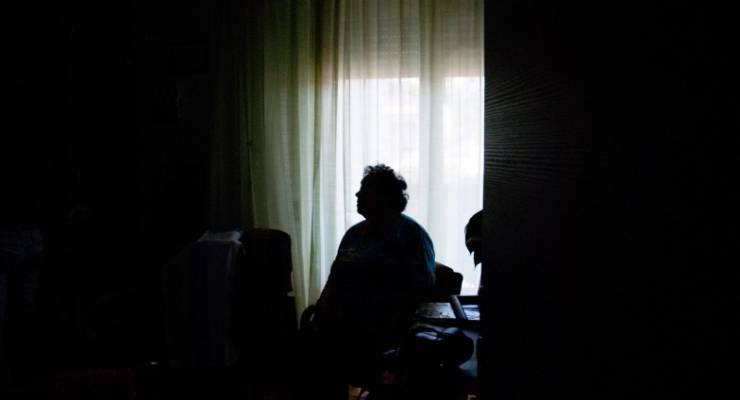
As Bernard Keane wrote this week, Australia’s aged case system is in crisis, and the letters inbox was flooded with your thoughts on what needs to change. Treasurer Josh Frydenberg’s nostalgia for the politics of Ronald Reagan and Margaret Thatcher also prompted many of you to write in, and you also had your say on the national COVID-19 commission.
On aged care:
Penny Martin writes: While Morrison ducks back to Canberra to avoid public criticism for shirking work, and Hunt and Andrews trade barbs about the current crisis in aged care homes (which is due largely to casualisation of the workforce), let’s remember the architect of workforce casualisation. John Howard has much for which to answer.
Marg D’Arcy writes: Three things that might help with the aged care system, outside of fundamental structural reform. The first is a mandated staff to resident ratio, just like in Victorian hospitals and in early childhood education.
Second is adequate training and on-site supervision. The minimum requirement now to work in childcare is certificate three, but each room must have a certificate four, diploma or BA and the requirements for supervision and ongoing planning are constant and require written backup.
Thirdly, on-the-spot inspections and audits without notice and more than just a paper review — speaking to staff, residents and families in private as well as assessing policies and procedures.
Christopher King writes: Gerontology, and by extension aged care nursing, have never been popular career choices because they are less sexy than heroic curative medicine.
It requires something special perhaps to appreciate that the person in care is not going to “get better”. Aged care requires complex knowledge and high level skills, embodied in the division one nurse. Within the privatised for-profit business model of Australian aged care, expensive division one nurses are vastly outnumbered by division two, or under- or inadequately-trained personnel.
An adequate aged care system would match the needs of our elderly with appropriately trained professional carers. The current system reproduces the scandals of the past 50 years. It really is time to recognise the structural ageism underlying our current arrangements.
On Josh Frydenberg’s nostalgia:
Dale Treadgold writes: In asking what Josh Frydenberg is wishing upon us, Bernard Keane comprehensively debunks Frydenberg’s nostalgia for the fables of Thatcher/Reagan economic daring-do.
May I suggest that what Frydenberg is doing is attempting to counter something that must be sending shivers up the Coalition’s collective spine; that is the notion that, post-pandemic, government will have to play an increasing role in our lives for the foreseeable future.
I think he is trying to establish an ambit position to step back from in the coming arguments over better/more secure jobs, and the need for government to participate actively in the huge amounts of research and development that the economy is going to require.
Catherine Rossiter writes: I find it immensely disturbing that, in the midst of a nation-changing economic and health crisis, our treasurer wants to invoke the achievements of Thatcher and Reagan.
He conveniently ignores the fact that the neo-liberal policies espoused by Reagan and Thatcher increased the gap between rich and poor, led to the demise of many industries, and left their respective countries vulnerable to the populist Brexit and Trump campaigns.
If Frydenberg wants to return to the path of giving tax cuts to the well-off, reducing regulation, and reducing wages and job security, he is likely to find that Australians are less inclined to swallow that particular medicine now.
We will be looking for policies that deliver real jobs to our young people, better investment in our industries and universities, improvements to child care and aged care, and, especially, policies which will sustain both the economy and the environment as the climate continues to warm.
Judith Morrison writes: It seems to me returning to anything like the Reagan/Thatcher era is both foolish and misleading. Firstly they did not contend with a COVID-19 worldwide situation nor was climate change identified as it is today.
Having had decades of neoliberal policies and globalisation… surely the way forward with all its challenges and complexities is a new green deal that works towards equity and justice worldwide… we could start here with withdrawing subsidies to the fossil fuel industry.
On the COVID-19 commission:
Peter Tait writes: We don’t need a COVID-19 commission. We need a parliament being used to lead the strategy to manage and recover from this pandemic. They represent us, the people, not big business. Get them working on our future.
We love hearing from you. Let us know your thoughts on any of our stories by writing to to us at letters@crikey.com.au. Please include your full name to be considered for publication in this column.







Judith Morrison says that climate change was not identified in Reagan or Thatcher’s day. To raise a point of fact, Margaret Thatcher had been trained as a chemist so was easily persuaded of the threat from rising CO2. In November 1989 she addressed the UN General assembly, warning that “change in future is likely to be more fundamental and more widespread than anything we have known hitherto”. However she was responsible to the UK conservatives so had to shut up.
Even George W Bush admitted after Typhoon Katrina that we seem to have become dangerously addicted to oil and gas. These guys cannot claim ignorance. But it is we, the voters of the world, who have failed to exert decarbonisation since then.
If “the letters inbox was flooded” were these snippets from 7 all that were deemed printable?
Or were too many beyond Creaky’s limited view of acceptable opinion, as when comments are switched off?